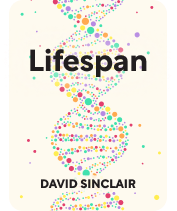

This article is an excerpt from the Shortform book guide to "Lifespan" by David Sinclair. Shortform has the world's best summaries and analyses of books you should be reading.
Like this article? Sign up for a free trial here .
Is it possible to cure aging? How can human societies adapt to the world without aging?
According to biologist David Sinclair, it’s inevitable that we’ll cure the disease of aging. Further, he believes that we can not only cure aging but also create a world that’s able to support an undying human population. It will require major changes in how we think about almost every aspect of society, but Sinclair says that it’s not only possible but necessary to do so.
Here’s why curing aging is just a matter of time and how we can prepare for the future where people live forever.
How to Create the Best Future
In his book Lifespan, David Sinclair argues that curing aging is a matter of time. He proposes ideas for how we could prepare society for people living forever. The overall message is that we have to stop thinking about long-term issues as “somebody else’s problems.” We need to take accountability for the future—not just the near future, but 100 or 200 years down the road—and encourage others to do the same. For example, many people aren’t concerned about climate change because they expect to be dead before the worst effects hit us; if those people thought they’d have to personally experience the drought, famine, deadly heat, and extreme storms that climate change will bring, they would probably push harder for solutions.
To that end, Sinclair says we’ll have to fight for major advancements in almost every aspect of society. We’ll need more efficient ways of producing and transporting food, a health care system that doesn’t accept the effects of aging as inevitable, and a commitment to reducing our consumption and waste production by breaking our addiction to “stuff”—in other words, we need to live sustainably, taking only what we need.
What Is Sustainability?
When Sinclair talks about preparing for a future where people live forever, he’s really talking about sustainability—meeting our present needs while ensuring that people in the future will also be able to meet theirs.
Over the last few decades, as people have become more conscious of our impact on the future, sustainability has become a big enough concern that some of the world’s largest companies have named it as one of their top priorities. They’ve also developed clearer pictures of what sustainability means, and commonly break it down into three key areas:
- Environmental sustainability. This is what most people think of when they hear “sustainability.” In short, it means reducing your impact on the environment by using water and fuel as efficiently as possible, minimizing your waste output, and replenishing what natural resources you can (planting food or trees, recycling whenever possible, and so on).
- Social sustainability. Basically, supporting the community you live and work in. On a corporate level, this often means making sure that products come from ethical sources, that the workplace is safe, and that employees can enjoy a good work/life balance. On an individual level it could mean doing volunteer work, running fundraisers for local causes, or hosting social events.
- Economic sustainability. This area of sustainability is all about managing risks, following the rules, and ensuring long-term profitability without sacrificing the other aspects of sustainability. This is almost purely a corporate concern, but if you were to adapt it for the individual, you could say that it’s about doing worthwhile work, investing responsibly (making sure that you’re supporting good causes with your investments, not just looking for maximum returns), and not turning to illegal practices for a quick buck.
If Sinclair is right that people could someday live for hundreds of years, then sustainability will become a more important (and personal) issue than ever before.

———End of Preview———
Like what you just read? Read the rest of the world's best book summary and analysis of David Sinclair's "Lifespan" at Shortform .
Here's what you'll find in our full Lifespan summary :
- Why biologist and geneticist David Sinclair believes old age is a curable disease
- The potential problems of a world where people never die
- How the elderly stifle the economy






